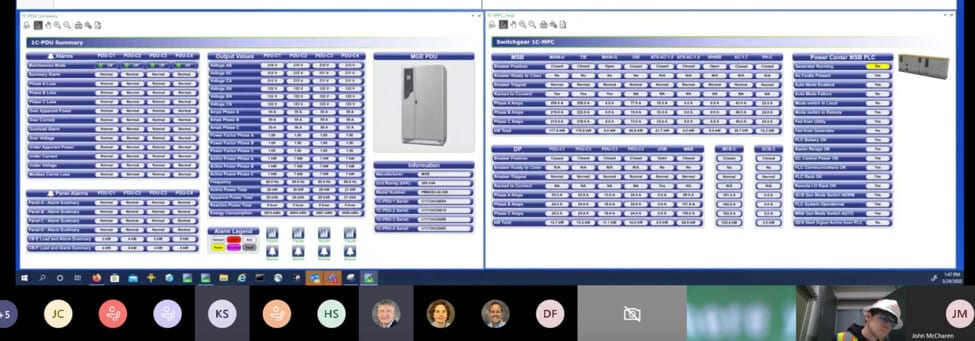All across the country right now, we are seeing smart, creative people doing ingenious things to provide critical materials and essential services during the COVID pandemic. College kids are 3D printing face shields for healthcare workers. Engineers in fields unrelated to healthcare are coming up with ways to convert devices into ventilators and to re-rig ventilators to support multiple patients at once. Supermarket workers are coming up with ingenious modifications to store layouts to route customers in ways that increase safety—with smart practices that remind me of air flow modelling for data centers.
One thing that has become apparent during our current health crisis is just how reliant we are on the internet, and correspondingly, its data center supported infrastructure. Without data centers, many of the things that we are doing collectively- taking care of the sick, continuing our educations, working and staying connected – would not be possible. Each new data center adds to the underlying support structure critical to the delivery of these essential services, and capabilities. In fact, the Department of Homeland Security specifically listed data centers as essential critical infrastructure during the COVID-19 crisis. As a result, continuing to build and deliver facilities at this time is extremely important but also requires providers to become more innovative in their procedures. Our recent experience in commissioning and performing Uptime certification at the expansion facility we built for TierPoint in Raleigh is an excellent example of innovating long-held processes.
The construction process for the data center was completed in the days before COVID-19 had gained a foothold in the country. However, as we were about to begin the final step before facility handoff, Level 5 commissioning, it became apparent the traditional approach to completing all of the associated activities wasn’t possible in a time of social distancing. Traditionally, commissioning involves a team of 20-25 people crowded into confined spaces to monitor equipment and sensors – neither of which is possible in the COVID era, especially after a number of contracting personnel were forced to self-quarantine. Perhaps exemplifying that necessity is the mother of invention, the team came up with an ingenious solution that to my knowledge is the first time it’s ever been done in the mission critical industry: virtual commissioning using a skeleton crew on-site, a lot of video and sensor equipment, and a larger group working remotely.

Virtual Commissioning required a skeleton crew on-site communicating via radio, video and sensor equipment with a large team working remotely.
Successfully performing « virtual commissioning’ required Compass, TierPoint, the commissioning consultants, and the electrical and mechanical contractors to map out a plan to strategically use a set of live-streaming cameras, wireless sensors, and a very small group of on-site people (4 or 5 people) separated by safe distances. All of that data and human observation would then be relayed to off-site personnel via video feeds, sensor readings, cell phone updates, texts, walkie talkies and more. For anyone who has ever done Level 5 commissioning with IST, you know how many moving parts there are to the process. But the team anticipated all of that and successfully completed the IST testing in one day and the Uptime redundancy testing on the following day.
In retrospect, it is conceivable that this commissioning model could become prevalent for data center facilities even after the COVID pandemic subsides. That’s because the virtual commissioning ended up providing us far more recorded data than we would have had with the traditional process. I can tell you more about this facility than any other one I’ve ever been a part of building, and that same information will be invaluable for future training of every professional that will work at this data center in Raleigh. This isn’t just a first for the industry. I believe it’s a new best practice, and it’s all possible because necessity became the mother of invention. In fact, I will be working on a hybrid model for commissioning Compass’ facilities going forward that will incorporate virtual elements, even after the social distancing guidelines end.

